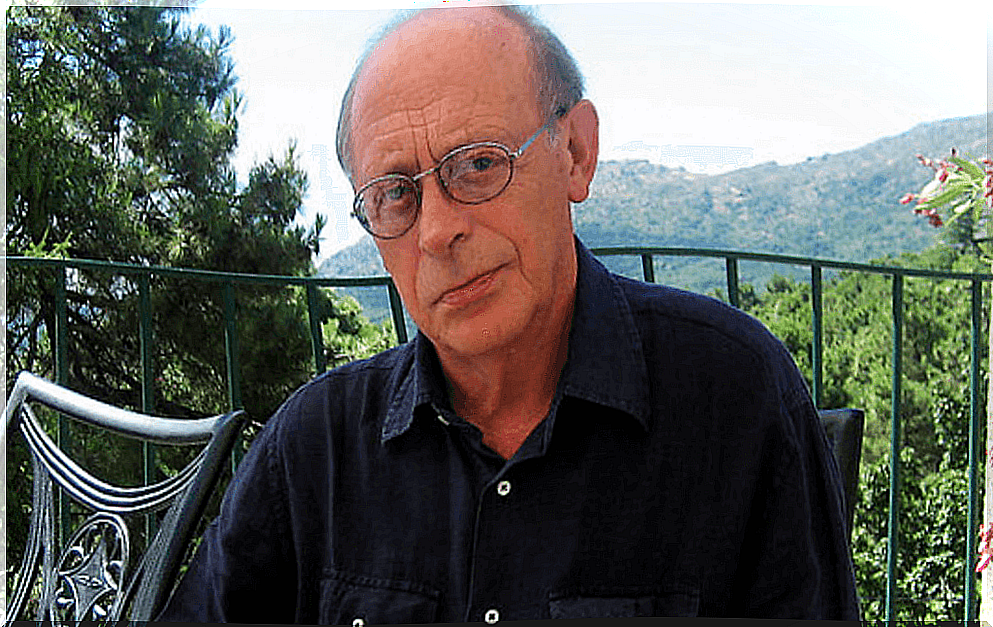7 Wonderful Phrases By Antonio Tabucchi

Antonio Tabucchi’s sentences have a special charm for the simplicity and freshness with which he wrote them. It could not be otherwise, considering that this is a writer who focused his work on the lives of common men who nevertheless reveal universal truths.
This Italian writer in love with Portugal was born in Pisa, on the same day the Allies bombed the city to free it from the Nazis. From a very young age, he was a voracious reader and a passionate traveller. Therefore, many phrases by Antonio Tabucchi refer to these themes.
Memory and dreams also have a special place in the work of this great writer, who admired Fernando Pessoa almost deliriously.
This influence and his own analysis of the reality of his time allowed him to be one of the most important contemporary novelists. These are some of Antonio Tabucchi’s most remembered phrases.

1. Stay in the country of origin
There are several phrases by Antonio Tabucchi in which he talks about his homeland. This writer was passionate about Fernando Pessoa’s work. This took him to Portugal, a country he also fell madly in love with.
In this sentence, he seems to clarify his position on the subject: “I never left my land, I am planted in it like a stump”.
It doesn’t just apply to your personal situation, but to everyone who has left the place where they were born. No matter how far away they are, their roots will always be in that place where they were formed.
2. One of Antonio Tabucchi’s phrases about memory
Memory is another recurring theme in Antonio Tabucchi’s sentences. This one, for example, says: “In reality, life is much more what we don’t remember than what we remember.” He refers to the capricious intricacies of the past in our minds.
Today, we know that memory is creative and imaginative. These characteristics also apply to forgetting. Finally, what we forget is much more than what we manage to retain in this imaginative world of memory.
3. The convictions and the heart
Tabucchi also refers, in one of his sentences, to the old dilemma between what is thought and what is felt. He put it this way: “It is difficult to have precise convictions when talking about the reasons of the heart.”
It means, ultimately, that human feelings are often ambiguous. That’s why beliefs that arise from subjective reasons also tend to be fragile, or at least a little confused. In this respect, reason is a more reliable reference.
4. Hybridization and miscegenation
Antonio Tabucchi was an extraordinary traveler. He was driven by a deep curiosity; I wanted to know other ways of being, other ways of thinking, other ways of living. He approached the different with an open attitude and a great capacity for admiration.
For this reason, I understood that demographic purisms are mild and not very enriching. So he said in one of his sentences: “The salt of any interesting civilization is the mixture of races.” The more diverse a society is, the more interesting is what it generates and produces.
5. The politician who doesn’t seem political
Some people think that the world of politics is the world of politicians. However, from a deeper perspective, it is clear that power runs through the everyday life of all people in many ways, regardless of whether or not they participate in formal politics.
One of Antonio Tabucchi’s phrases says: “My job is to see what politics is doing, in addition to the politician himself”. It refers to the search for those realities in which power comes into play, without this directly depending on the action of someone dedicated to politics.

6. The ideals of perfection in Antonio Tabucchi’s sentences
This is a fabulous phrase that could very well become a mantra for our democracies. She emphasizes: “Perfection generates doctrines, dictators and totalitarian ideas”. It is a criticism of the ideals of perfection, which often lead to disaster.
Both in the family and in education and in all areas of society, this great demand for the perfect only leads to arbitrariness. This is the most imperfect way of relating to other human beings.
7. Current memory
Antonio Tabucchi was also very critical of the way knowledge circulates and how relationships are currently shaped. In other words, he criticized what we call “postmodernity”.
So it’s not surprising that he said something like this: “Today, our memory is in a flat encephalogram.” This means that events happen so quickly and in such a trivial structure that they don’t even register in memory.
Antonio Tabucchi was a lively and entertaining writer who spoke a lot in his writings about people who don’t get what they want or who just don’t know how to want. Reading it is a wonderful experience that promises great surprises and reflections.









